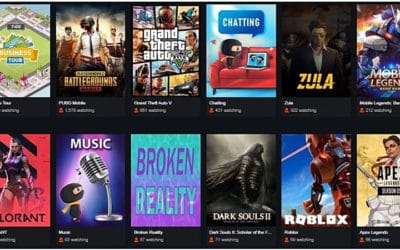Check out our curated Weekly RoundUP of the breaking and must-read news – making the sharing economy more inclusive; crowdsourcing Europe’s future; CIOs crowdsourcing usage to drive digital business, and more…
How to make the sharing economy more inclusive
For lower-income Americans, the sharing economy could be a huge life improvement—if only the sharing economy was interested in helping them
“By removing or reducing barriers such as ownership costs and complex, inflexible distribution networks,” the report says, “sharing economy models have incredible potential to enable much greater access to crucial goods and services for people and communities who have often been excluded from or are unable to meet their needs through more traditional models.” Then sharing companies can make new partnerships with government, like Uber’s arrangement with Altamonte Springs, Florida, where the city subsidizes rides to and from transit stops, or how Pinellas County, Florida, subsidizes Uber trips in “transit disadvantaged” areas of that area. Or, they can offer services direct to disadvantaged groups, like how Airbnb’s works with nonprofits to support people who need temporary housing, like medical patients traveling for treatment, or low-income students visiting colleges.
Beyond profit: social value in the collaborative economy
Learn how to grow the collaborative economy in order to generate more social value and public benefit
The commercial sector has been highly creative in thinking about applications for the collaborative economy, with billions being pumped into platforms and marketplaces to share and rent a thousand different things. (Five years ago, who knew there would be a market for sharing dogs?) But there are also a thousand different ways that digital infrastructures and platforms could be used to tackle very different kinds of needs: the needs of people, families, communities and local governments. The collaborative economy holds the potential to deliver public services in cities differently, make more efficient use of a city’s resources and support increased participation in civic activities and democratic processes. Some cities like Amsterdam and Seoul have developed ‘Sharing City’ strategies, with many other cities thinking expansively about the ways in which new digital infrastructures, networks and platforms can tackle local priorities. At Nesta, we have adapted our CITIE framework to provide an idea about how this might be applied to the collaborative economy, and debated how these solutions can help cities deliver on the promise of a ‘smart city’.
Crowdsourcing mapping for driverless cars
Civil Maps, aims to use regular cars to collect the data for mapping the streets
Of course, a major challenge will be to encourage enough car companies to add the software required to capture the data from the various sensors attached to the car and make it available to Civil Maps. The company hopes that by making the data available to the car company, it will be all the encouragement they need. It’s a fascinating approach, and the company believes it is by far the best way to make the kind of frequently updated maps that will allow safe motoring for the automated vehicles. The company has already secured a $6.6 million funding round, with investors including car giant Ford, which may be one reason why Ford was so confident that driverless cars would be on the road within five years. The machine learning software that underpins what Civil Maps does enables them to capture data from a multitude of sensors and make sense of it in map form. The model is also capable of informing how the vehicle should respond in certain road conditions.
‘We’re beating Google’, says Bristol-based UK cloud crowdsourcing startup
Bristol-based cloud crowdsourcing startup to list Google as a competitor
The pitch is simple enough: Yellow Dog is a crowd-sourced cloud computing provider. “There is enough computer power in the world already. It just isn’t being distributed properly,” Williams explained during an Oracle OpenWorld 2016 panel. Businesses use their servers up to just 15 percent of their potential capacity, on average, so there is a staggering amount of computing power around the world going spare. Yellow Dog’s plan is to pay companies for this spare computing capacity and then sell this to organisations which require vast amounts of power for processes such as rendering CGI adverts, TV cartoons, architectural plans and so on. “These animations often have about 25 frames per second, and last for two and a half minutes. They can take 10 hours to render and require a vast amount of computer power,” Williams said.
How CIOs can use crowdsourcing to drive digital business
New technologies – from social to mobile to cloud to the Internet of Things to analytics – now help answer business questions. More here
CEOs realize their shortcomings and look increasingly to their CIOs for solutions. According to The Economist, 75% of CEOs want their CIOs to play advisory business strategy role–not just an IT viewpoint– in the C-suits (sic). IT alone won’t buy you the price of admission. Moreover, economic performance for organizations whose CIOs were part of overall development strategy outpace their competition by 2:1. CIOs are in the position to understand best what, where, and how new technology can accelerate strategic innovation. For the CIO, this transition from IT to business strategy not only helps drive digital transformation, but can also make his career. Crowdsourcing has allowed enterprises to tap into millions of expert data scientists, developers, and designers worldwide to solve issues ranging from building CRM applications that allow established, non-technology-based companies to fundamentally change the way they work with their customers to changing the way in which Harvard Medical School conceives of its research in immunogenomics — a world-class shift.
Crowdsourcing Europe’s future
POLITICO’s online poll on fixing the EU shows people want to feel more protected.
Fixing the European Union will require its leaders to work harder to address security and economic concerns, according to a plurality of voters in an online POLITICO poll. There were almost 9,000 votes cast in the week-long survey, which asked respondents to choose from among 12 different ideas for “saving Europe” in the face of multiple political and economic crises. The poll was taken as European leaders launch what promise to be difficult talks on the future of the EU. Voters in the online survey came from all 28 EU countries, as well as from more than a dozen other nations, including Russia, the U.S., India, Mozambique and Australia. Their most-favored suggestion for how to save Europe, “Focus on security, economy and youth employment,” is related to a French, German and Italian proposal to increase security cooperation among EU nations. The idea, discussed by the leaders of those countries in several meetings over the summer, is to push measures to protect European citizens not just from military or terror threats, but also from the effects of globalization. In the POLITICO poll, it was supported by 16 percent of respondents.
Image: fastcoexist
There are many fantastic stories out there. What else caught your eye this week? Did you come across some breaking news or a good thought piece? Do share them with us…





0 Comments